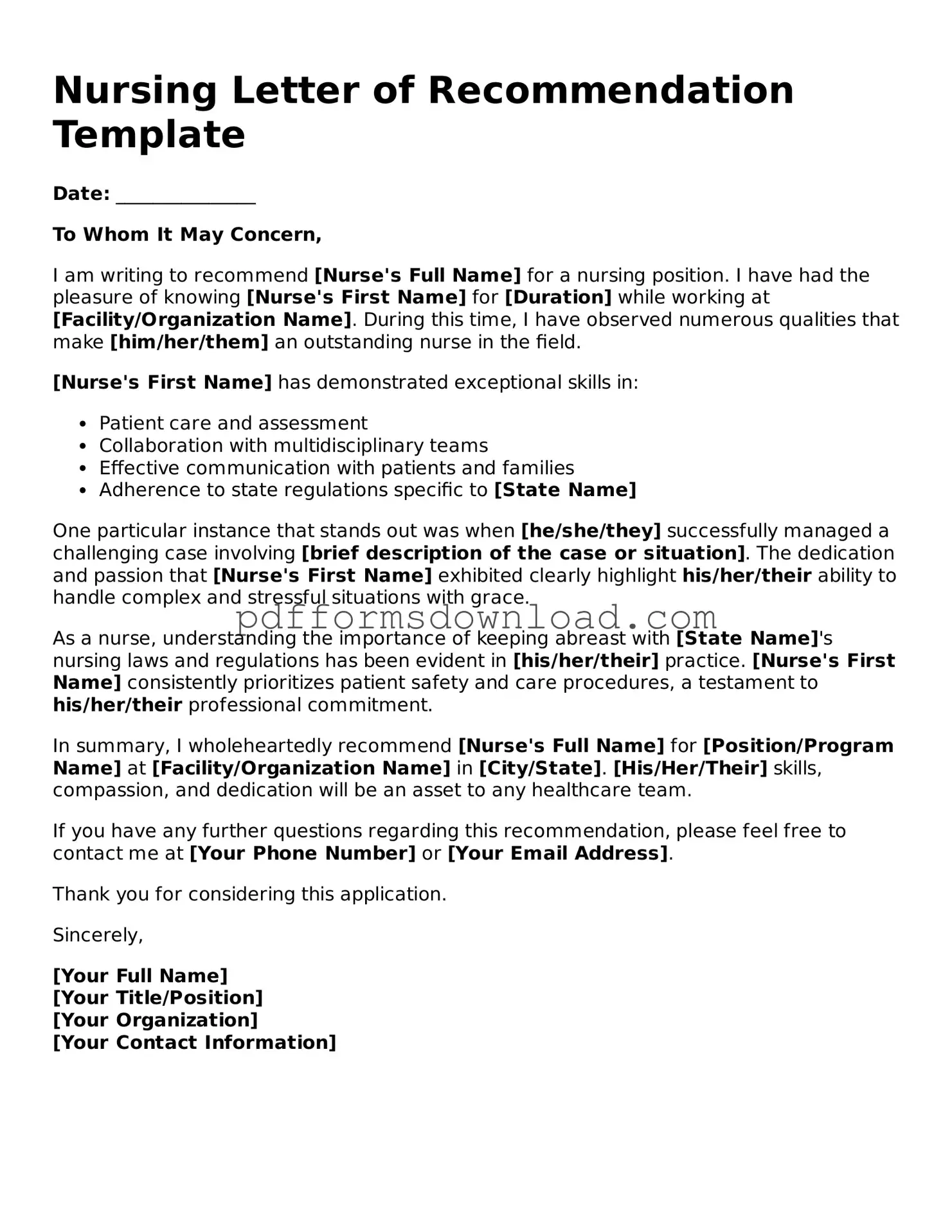Official Nursing Letter of Recommendation Document
The Nursing Letter of Recommendation form is a crucial document that supports a nursing candidate's application by providing insight into their skills, character, and professional experiences. This form is typically filled out by a supervisor, colleague, or educator who can vouch for the applicant's qualifications and dedication to the nursing profession. Completing this form can significantly enhance an applicant's chances of securing a position in a competitive field.
Ready to take the next step? Fill out the form by clicking the button below.
Make This Document Now

Official Nursing Letter of Recommendation Document
Make This Document Now

Make This Document Now
or
Free PDF File
Your form is almost ready
Complete your Nursing Letter of Recommendation online — edit, save, and download easily.